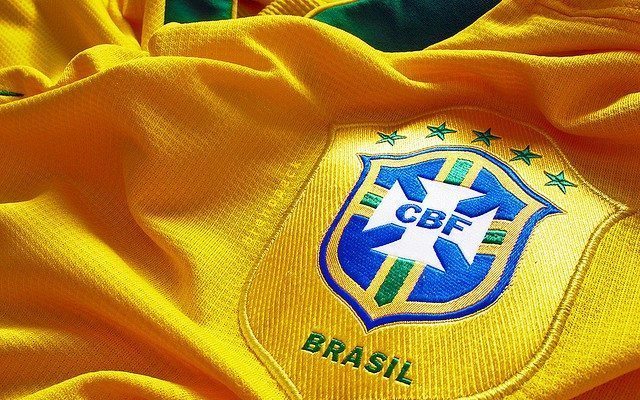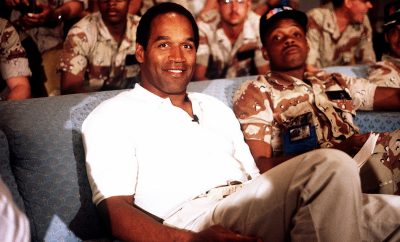
Crime
Brazil Lost the World Cup and the Battle Against Crime
While the World Cup brought some of the mot talented soccer players to the forefront, it also brought out some of the savviest criminals along with it. Much like the South African World Cup in 2010, spectators venturing to Brazil this summer were told to be wary and vigilant as crime was expected to make a meteoric rise as the games went on. Sadly, they were correct. From the cloning of debit cards to rudimentary muggings, fans from all over the world were victims of crimes during the World Cup
Crime was already on the rise in Rio de Janeiro in the months leading up to the World Cup, with muggings increasing an astounding 60 percent at the infamous Copacabana Beach. According to Rio’s crime statistics, muggings had increased 44 percent in the first four months of this year alone. As Brazil was expecting criminals to take advantage of the wide-eyed tourists exploring the country this summer, they started to “clean up” the infamous favelas. Police presence was amplified in the months leading up to the World Cup, which saw the arrests of dozens of hardened criminals. Despite this, fans still fell victim to crimes throughout the month-long tournament.
Jack Smith, an American who withdrew money in a Rio De Janeiro airport believes that his card was cloned instantaneously and used over the next couple of days to spend $12,000. Luckily, when he noticed the charges he immediately contacted his bank and they were able to cancel the card and cover the losses. “I’ve probably met 60 people here, and 20 have been hit,” Smith told Fox News. Some spectators were not as lucky as Smith and were unable to retrieve their stolen property.
Christian Alvarez, a Chilean fan, had $1,700 stolen from him at gunpoint outside his hotel. He contacted the Chilean consulate to try and get his money back but was unsuccessful. Another Chilean, Fabian Morales, lost his passport as he was celebrating Chile’s win over defending champions Spain.
Takeshi Itai, a Japanese tourist, was visiting a favela in the eastern region of Salvador when five men with guns approached his taxi. Luckily the taxi managed to drive away before the robbery could take place. “I’ll never go into a favela again. I never imagined I would have guns pulled on me,” Itai told the Japanese Times. Unfortunately for Brazil, it seems like the experiences from this World cup may discourage some fans from venturing to Rio for the 2016 Olympics.
At the start of the World Cup, the Brazilian government distributed a brochure detailing what to do in the event of a mugging. “Do not react, scream or ague,” the brochure said. They warned tourists to not carry a lot of cash on them, to not flaunt their valuables, and to do periodic checks to make sure no one was following them.
For those who could afford it, private security companies were available to provide round-the-clock security. iJET, a security company, estimates that between 30,000 to 60,000 people spent at least $10,000 on “enhanced security services,” at this World Cup. A lot of people are venturing down to the South American country not for pleasure, but for business. “These companies are sending their most valuable assets and customers down there,” John Rose, chief operator at iJET said.
Yet with the 25,000 police officers dispatched for the final, a 2-km police perimeter set around the stadium, and hundreds of personal security guards, chaos still ensued throughout the tournament. Fans watching the Brazil vs. Germany game at Fifa’s Fan Fest on Copacabana Beach were forced to flee after a group of masked men conducted a mass robbery, stealing bags and jewelry. An electronic store was looted, gunshots were fired into a large crowd, riots broke out, passports were stolen, fans fought each other, and buses were set ablaze. The buses burned in the neighborhoods of Sao Paulo, Brazil’s largest city; and when the flames were finally put out nineteen buses were destroyed in total.
In my eyes, Brazil has lost this World Cup on all accounts. Brazil certainly lost in on the field after an embarrassing 7-1 defeat by Germany, which will be remembered for decades. It has lost the faith of tourists, the people who traveled to Brazil in hopes of celebrating this joyous event and soaking in the Brazilian culture, but were instead held at gunpoint, robbed, and assaulted. And it has lost the faith of its own people, after spending so much money — $14 billion to be exact — while the country is plagued by massive economic inequality and an ailing economy. We can only hope that in four years, when the World Cup dawns upon us again, Russia will do better.
—
Trevor Smith
Featured image courtesy of [Breno Peck via Flickr]








Comments